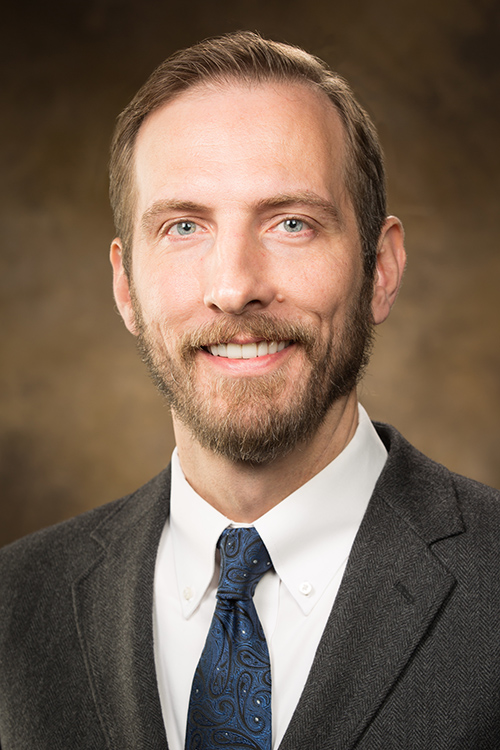Kevin Roessger owned and operated a tile and stone company for several years before returning to graduate school for master's and doctoral degrees in adult and continuing education.
Roessger joined the faculty of the adult and lifelong learning program in the College of Education and Health Professions at the University of Arkansas this fall. It was when he was asked to teach a technical school course on segmental paving that he realized he wanted to pursue advanced degrees to improve his teaching.
A Wisconsin native, Roessger earned a bachelor's degree in psychology and graduate degrees in adult and continuing education from the University of Wisconsin-Milwaukee. He taught at Seattle University for three years after finishing his doctorate in 2013.
When he sold his business in 2008 and began teaching his trade, he realized that, although he knew the content well, he needed to learn more about teaching, designing curriculum and assessing learning. He also saw a need for more evidence-based practice and research in the field around how adults learn.
"What drew me to the field of adult learning was reflecting on my own learning experiences," Roessger said. "The great thing about the field is that it's a wide umbrella covering many forms of learning. Most organizations have some form of training and development, and universities and community colleges offer numerous formal learning opportunities for adults. Even organizations like home-improvement stores offer non-formal courses such as gardening clinics. Adult learning is everywhere."
"Much adult learning is self-directed," he continued. "We can all learn about topics online. I saw myself using these opportunities to enrich my own life as I reach constantly for changing, new goals. (Teaching at the U of A) felt like a natural place to be."
Roessger's primary area of research is reflective learning processes with adults. He is studying, with colleagues in Milwaukee and Seattle, what effect reflection has on learning outcomes. Specifically, his research has investigated the role of the self in reflective learning and whether people retain more knowledge when they relate concepts to themselves rather than other things. He calls this personal relevance. He is currently investigating the effects of incorporating the self in a classroom activity called concept mapping.
"When you identify how a concept is relevant to you and then relate it to other things you have done, you tend to remember that concept at a much higher rate," he said.
He is now working on incorporating those findings into suggestions for how instructors can use them in the classroom.
Contacts
Heidi S. Wells, director of communications
College of Education and Health Professions
479-575-3138, heidisw@uark.edu
